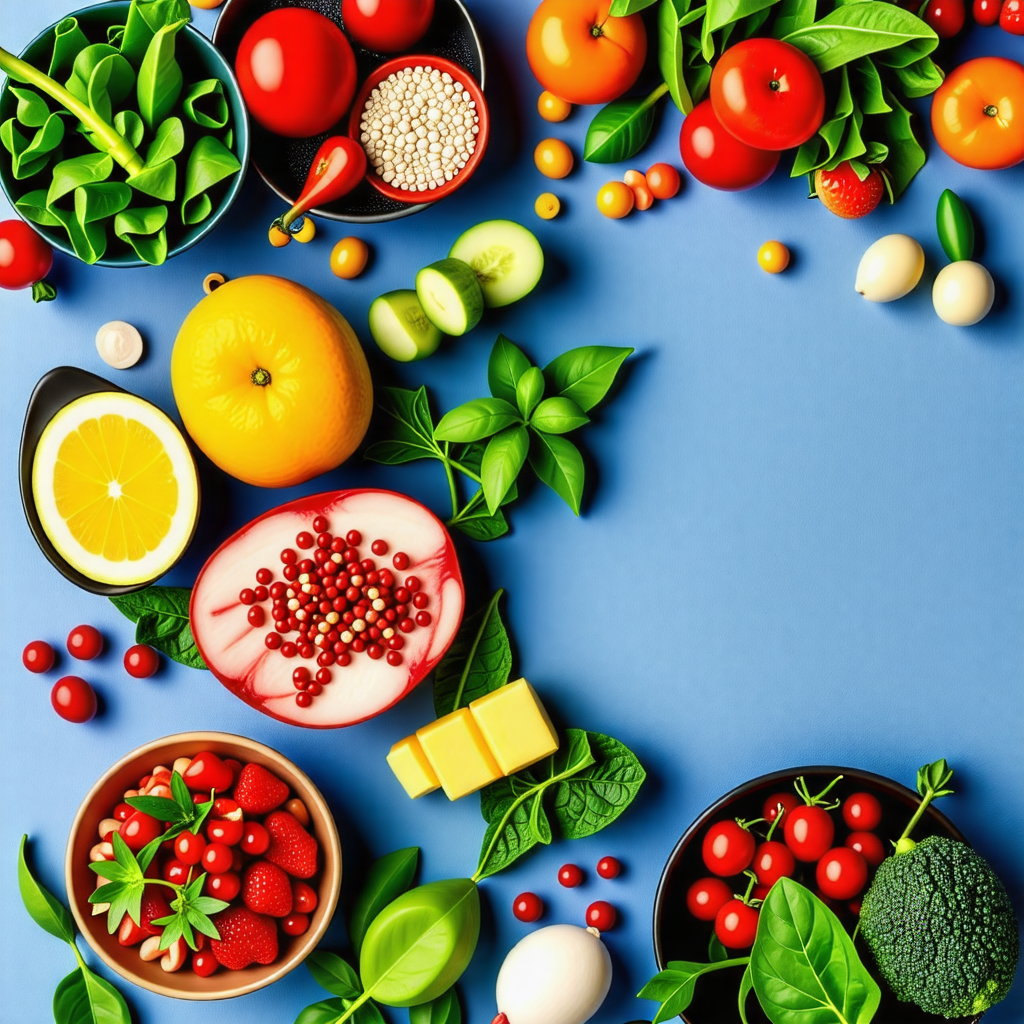- Understanding the Basics of Diet and Nutrition
- Key Nutrients for a Balanced Lifestyle
- Maintaining a Sustainable Healthy Diet
- Incorporating Natural Foods into Your Meal Plan
- The Role of Hydration in Overall Wellness
Understanding the Basics of Diet and Nutrition
Let’s be real—when it comes to diet and nutrition, there’s no one-size-fits-all secret. But understanding the fundamentals is the first step toward making smarter food choices for a healthier you. Simply put, a good diet provides your body with the energy it needs, supports growth, and helps in preventing diseases.
At its core, your diet is just the food and drinks you consume daily. However, combining this with balanced nutrition means ensuring that these meals contain the right nutrients in the right amounts. Balance is the game. Think carbohydrates for energy, proteins for muscle repair, fats for long-lasting fuel, and yes, vitamins and minerals for all the small (but mighty) functions your body performs.
And don’t forget—your body isn’t a robot (even if that energy drink makes you work like one). It craves variety! Incorporating colorful fruits, seasonal veggies, lean proteins, and even the occasional treat here and there keeps the whole experience enjoyable while helping you maintain long-term success with your health goals.
Key Nutrients for a Balanced Lifestyle
Nutrients are like the cast of your favorite movie—each one has a special role to play, and together, they create a masterpiece of health. Let’s break them down so it sticks:
1. Carbohydrates - Your Energy Powerhouse
Carbs tend to get a bad rap, but they’re essential for fueling your body, especially when choosing complex carbs like whole grains, fruits, and vegetables. Quick tip: Swap white bread for whole-grain options. You'll thank yourself for both the taste and nutrients.
2. Proteins - The Body Builder
Protein is vital for maintaining and repairing tissues. Think fish, chicken, eggs, and even plant-based options like lentils or chickpeas. Want a quick snack? Try a handful of unsalted nuts or a hard-boiled egg for a protein boost during a busy day.
3. Fats - The Misunderstood Friend
Not all fats are bad—healthy fats like those found in avocados, nuts, and olive oil are incredibly beneficial for your heart and brain. Just keep an eye on portion sizes, as fats tend to pack a punch when it comes to calories.
By blending these nutrients into your everyday meals and snacks, you’ll fuel your body right and avoid crashes throughout the day.
Maintaining a Sustainable Healthy Diet
Let’s talk sustainability when it comes to your nutrition. Sure, a trendy diet might help you drop a few pounds quickly, but is it something you could stick to for the next 10 years? Likely not. That’s where sustainable eating comes into play.
Start by creating simple habits instead of overhauling your entire lifestyle overnight. Love pizza? Great—try adding a few extra veggies, or opt for a whole-wheat crust. Small swaps can make a big impact on your health while keeping you happy (and full). Also, aim for consistency rather than perfection. It’s okay to treat yourself occasionally—balance is better than extreme restrictions.
And don’t forget meal prep! Taking a little time over the weekend to prep some basics can save you loads of effort later. Roast some veggies, boil some rice, or make a batch of healthy soups or stews. When life gets chaotic, having something already prepared can keep you from reaching for that drive-thru menu.
Incorporating Natural Foods into Your Meal Plan
Natural, unprocessed foods are where it’s at when we’re talking about maximizing your health. Think of things that come from the ground or are minimally altered—fruits, vegetables, nuts, seeds, and lean proteins. Nature gives us an incredible bounty; we just have to learn how to use it.
If you’re a bit hesitant about change, start small. Try swapping out one sugary snack for a piece of fruit or adding some spinach to your morning smoothie. Not a fan of salads? Explore different ways to roast or season veggies that bring out their natural sweetness and flavor.
Another easy win is cutting back on processed snacks, like chips or cookies, and replacing them with whole-food alternatives. For instance, snack on carrot sticks with hummus or enjoy a handful of seeds or dried fruits for that on-the-go convenience. These swaps will not only satisfy cravings but also provide you with key nutrients your body needs to thrive.
The Role of Hydration in Overall Wellness
Hydration often gets overshadowed by the debates about carbs and sugar, but truth be told, it’s a game-changer for your health. Staying well-hydrated helps regulate body temperature, improves digestion, and even gives your skin that glow we’re all chasing.
Most experts recommend around 8 glasses of water daily, but your needs may vary depending on your activity level and climate. Not a fan of plain water? No worries! Herbal teas, infusing your water with fruit slices, or even eating water-rich foods (hello, cucumber and watermelon) is a fantastic way to stay on track.
A trick I use? I grab a reusable water bottle and make it my go-to accessory. Whether I’m at my desk or out for a walk, it’s a constant reminder to sip throughout the day. Honestly, it’s like having a wellness buddy!
Achieving optimal diet and nutrition isn’t about perfection; it’s about progress. By understanding the basics, incorporating key nutrients, and making sustainable choices, you’re setting your body and mind up for long-term success. It’s not just about the food you eat—it’s about forming habits that work for your lifestyle. Don’t forget to give it time, enjoy the process, and, most importantly, treat your body with the care it deserves. You’ve got this!






